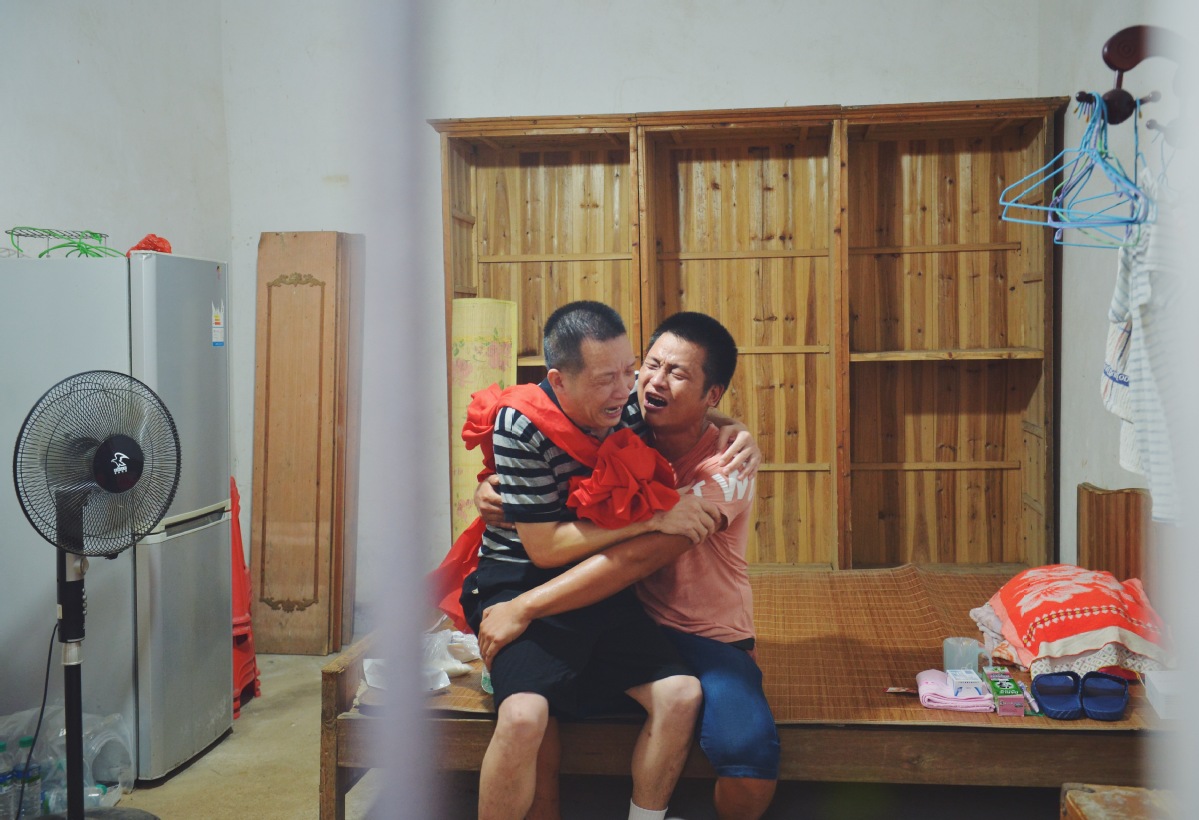Man set free after wrongful incarceration
By Cao Yin | China Daily | Updated: 2020-08-05 09:28

Zhang Yuhuan released due to lack of evidence after serving 27 years in prison
A man from Jiangxi province had his name cleared on Tuesday due to insufficient evidence for his conviction of intentional homicide, about 27 years after he was wrongly detained.
The Jiangxi High People's Court overturned an original ruling in which Zhang Yuhuan was given a suspended death sentence and found the 52-year-old not guilty because the chain of evidence in his case was not strong enough to prove his conviction.
Zhang was freed on Tuesday after the verdict and returned home.
Zhang, a villager from Jinxian county of Nanchang, capital of Jiangxi, was reportedly the longest-serving wrongfully convicted inmate in the nation.
He has been informed he has the right to apply for state compensation for wrongful conviction, according to the court.
"I'll negotiate the exact amount of compensation with my client,"Wang Fei, Zhang's lawyer, told China Daily on Tuesday. "We're also planning to ask for those who committed judicial miscarriages in the case to be held accountable."
"I was so excited when I heard the court's announcement," said Zhang's ex-wife Song Xiaonyu, who had two sons with Zhang before divorcing him 11 years ago. Though she remarried, she still helped Zhang appeal, and her current husband allowed her and the children to meet Zhang while he was in prison.
The high-profile case dates back to October 1993, when the bodies of two boys were found in a reservoir in a village in Jinxian. Several days later, Zhang was identified as the suspect and detained.
In January 1995, the Nanchang Intermediate People's Court sentenced Zhang-who was the neighbor of the two victims-to death with a two-year reprieve for the crime of intentional homicide, meaning his sentence would be commuted to life imprisonment after he served two years.
Zhang denied being the killer and appealed to a higher court, adding he was tortured by police during interrogations.
Two months later, the high court sent the case back to the lower court and ordered a retrial due to insufficient evidence.
But the rehearing was not opened until November 2001, and the intermediate court upheld the original judgment.
Zhang appealed to the high court again, but this time his appeal was rejected.
While serving his sentence, Zhang refused to accept the verdict, and his family began helping him continue to appeal by sending materials to various judicial departments.
After years of determination, the high court decided to retry the case in March 2019. When the court reopened the case on July 9, the provincial prosecutors suggested the court acquit Zhang based on insufficient evidence.
"After we reviewed the materials, we have found there is no direct evidence that can prove Zhang's conviction. So we accepted the prosecutors' suggestion and have declared Zhang innocent," said Tian Ganlin, the judge responsible for the case at the high court.
He noted the acquittal also implemented the "no punishment in doubtful cases" principle under the Chinese Criminal Procedure Law.
























